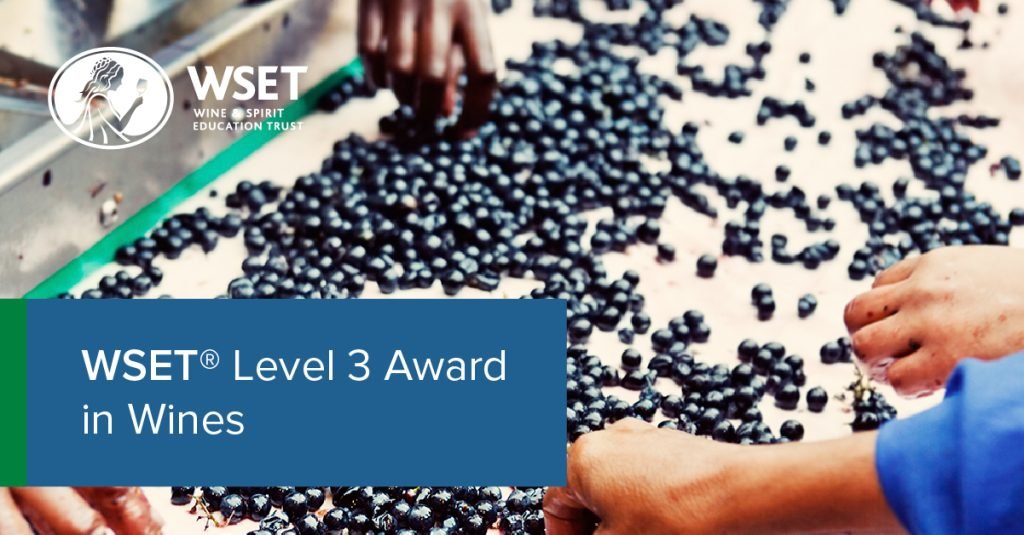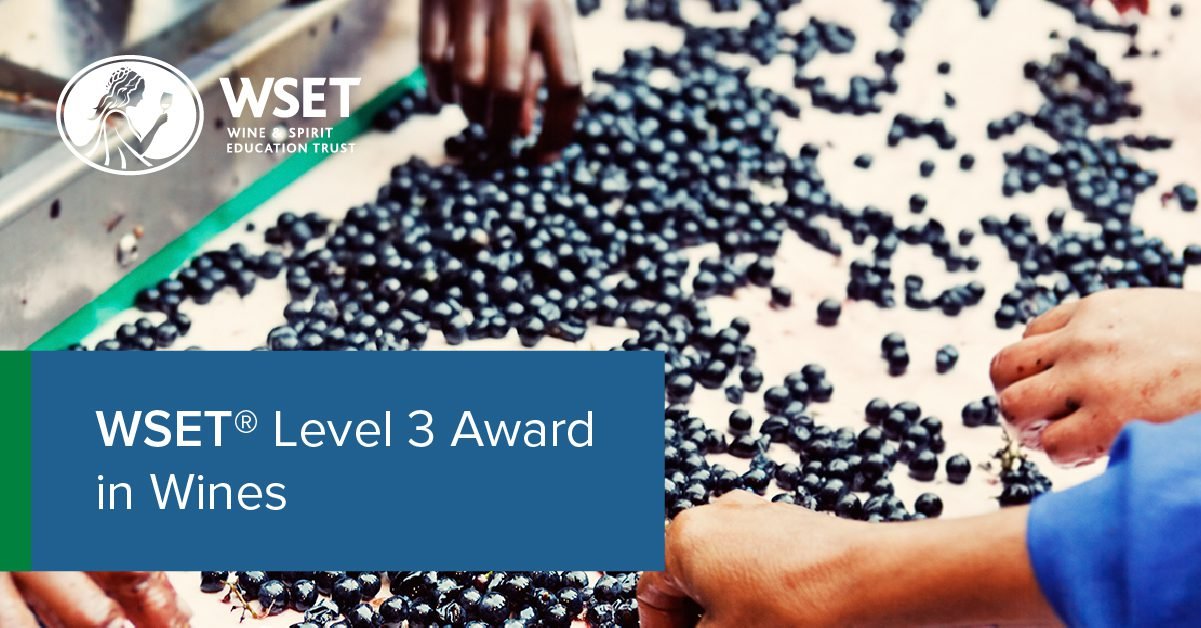The WSET Level 3 Award in Wines is a globally recognized qualification for hospitality professionals, sommeliers, and serious wine enthusiasts. It goes beyond basic wine appreciation, focusing on viticulture, winemaking, global wine regions, and structured wine tasting techniques.
If you’re preparing for WSET Level 3, this guide will help you navigate the syllabus, master tasting techniques, and excel in the exam—especially in the growing Indian wine market.
What is WSET Level 3?

Why Pursue WSET Level 3?
WSET Level 3 is the gateway to senior wine industry roles and further certifications like WSET Level 4 Diploma.
For Indian professionals, it enhances credibility in a rapidly growing wine market, where premium brands, wine tourism, and sommeliers are in high demand.
Eligibility and Prerequisites
You don’t need WSET Level 2, but a strong foundation in wine knowledge and tasting is essential.
Key requirements:
- Prior experience with wine tasting using the WSET Systematic Approach
- Understanding of grape varieties, wine styles, and key global regions
Key Topics Covered in WSET Level 3
- Viticulture and Vineyard Management
Learn how factors like climate, soil, and vineyard practices affect grape quality. - Irrigation & pest control – Crucial for hot-climate regions like Maharashtra & Karnataka.
- Canopy management – Ensures optimal grape ripening.
- Winemaking Processes
Understand techniques like fermentation, barrel ageing, and maceration that influence wine style & quality.
Example: Oak ageing adds vanilla & toast notes, while stainless steel preserves fruit freshness.
Global Wine Regions
WSET Level 3 explores major Old World & New World wine regions:
Old World
- France: Bordeaux, Burgundy, Champagne
- Italy: Tuscany, Piedmont, Sicily
- Spain & Portugal: Rioja, Sherry, Port
New World
- California: Napa & Sonoma
- Australia: Barossa Valley, Margaret River
- South Africa: Stellenbosch
- India: Nashik, Bangalore
Sparkling & Fortified Wines
Learn about secondary fermentation & blending techniques used in:
- Champagne & Prosecco
- Port & Sherry
Wine Labeling & Business Insights
- Wine classifications (DOCG, AOC, etc.)
- Market trends & pricing strategies
The WSET Systematic Approach to Tasting (SAT)
- How to Analyze Appearance
- Clarity & color – Pale gold vs. deep ruby wines
- Age indicators – Aged wines develop darker hues & complexity
Interpreting Aromas & Flavors
- Primary aromas – Fruit, floral
- Secondary aromas – Yeast, oak
- Tertiary aromas – Leather, nuts, dried fruit
Assessing Structure & Quality
- Acidity & tannin – Essential for age-worthy wines
- Alcohol & body – Determines mouthfeel & intensity
Practice Tasting Exercises
Pair Indian wines (Sula, Grover Zampa) with global counterparts to refine your palate.
WSET Level 3 Exam Format & Preparation
Theory Exam
1. Multiple-choice questions (MCQs)
- 50 questions on grape varieties, regions, winemaking.
- Use WSET Level 3 Specification for key topics.
2. Short written answers
- Explain concepts like maceration, tannin management.
3. Tasting Exam
- Analyze 2 wines using the WSET Systematic Approach.
- Appearance, nose, palate, structure & quality are assessed.
Tips for Passing WSET Level 3
Effective Study Techniques
- Use flashcards – Grape varieties & regions.
- Create mind maps – Winemaking processes.
- Review WSET Specification regularly.
Using the WSET Specification & Textbook
This is your exam blueprint—study each section thoroughly.
Practice Tasting with Local Wines
Compare Indian Sauvignon Blanc vs. New Zealand Sauvignon Blanc to understand regional differences.
Time Management for Exam Prep
- Allocate equal time for theory & tasting practice.
- Weekly mock exams improve confidence & recall.
WSET Level 3 in the Indian Context
Why Indian Professionals Should Consider WSET Level 3
- India’s wine industry is expanding → Premium brands are growing.
- Career opportunities in hospitality, retail, & wine education.
Access to WSET Classes & Resources in India
Available in Mumbai, Delhi, Bangalore through approved providers.
Online resources: Tasting videos & mock exams.
Understanding Indian Wine Regions & Market Trends
Nashik & Bangalore are emerging global players.
Knowledge of local terroirs is increasingly valuable.
How WSET Level 3 Can Boost Your Career
1. Hospitality & Sommelier Roles

- Work in five-star hotels & premium restaurants.
- Curate wine lists & enhance guest experiences.
2. Retail & Distribution Opportunities

Learn wine selection, supplier negotiations, & pricing strategies.
3. Education & Wine Consultancy

Teach & consult as India’s wine scene grows.
Common Challenges & Solutions
- Memorizing extensive content
- Break study into small sections & use active recall.
- Tasting practice
- Join local wine tastings & study groups.
Final Thoughts
The WSET Level 3 Award in Wines is essential for advancing your wine career—whether in India or internationally.
With structured study, regular tasting, and expert guidance, you can confidently pass the exam and elevate your career in the wine industry.


